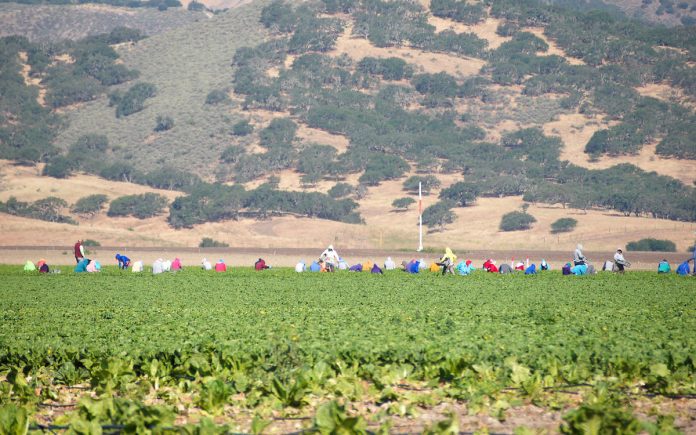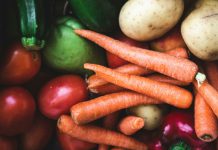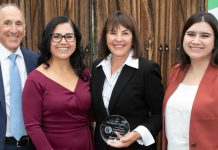
SALINAS VALLEY — A panel of experts discussed current challenges in agriculture, such as the future of the workforce and the role of education, during the eighth annual Salinas Valley Ag Tech Summit.
The two-day session spanned more than eight and a half hours of streaming, with this year’s offerings being held virtually on March 18 and 19.
Keynote speaker Karen Ross, secretary of the California Department of Food and Agriculture, hosted a fireside chat with moderator Dennis Donohue, director of the Western Growers for Innovation and Technology.
While discussing the importance of science and technology in education, Raul Rodriguez, interim superintendent of Hartnell College, announced the community college’s partnership with California State University Monterey Bay in having been awarded $300,000 for a two-year research grant to benefit ag science.
“What they’re going to be working on are diseases that damage crops and how we can work with the soil to try to mitigate the effects of some of these diseases,” Rodriguez said.
He noted the importance of adapting education to the changing needs of agriculture, adding that Hartnell’s own commitment toward that mission includes internships and continuously growing its agtech program.
A new degree pathway has been created between Hartnell and CSUMB, the Agricultural Plant and Soil Sciences.
“Our ag students typically go to CalPoly, UC Davis, Fresno State,” Rodriguez said. “Now with this partnership, this degree pathway with Cal State Monterey Bay, they won’t have to go away if they want to study this area.”
He said such developments benefit the local ag community and add to the skill level of local workers.
The timing is right to prepare the workforce, now more than ever, due to the fast advancement of technology, Ross said during her keynote.
“If we wait too long, we’ll have all that technology and people will say, ‘my job’s been displaced,’ but it’s because we’re not currently investing in workforce development,” she said. “We can’t wait for it to be done … we have to be investing in workforce development now.”
Ross spoke of all industries needing to adapt to the rise of technology, but focused on the importance in agriculture. She said education to prepare future workers and increase abilities of current workers was paramount.
“As we try to rise to the occasion of feeding 10 billion people with an ever-smaller environmental footprint, the challenges of doing that and to do it well with good nutrition are just going to continue,” Ross said. “What we have to think about is the continuum of the education system, starting with ag in the classroom so kids get excited, that’s what science is about.”
Ross noted the proximity of Salinas to San Jose, in how the Salinas Valley is thought of as a worldwide agricultural resource, while Silicon Valley is thought of as a tech resource. The proximity, she said, may lead to lessons in how to move forward.
She explained both federal and state governments are working on broadband access programs after the devastating lessons in technology gaps during the Covid-19 pandemic.
“Broadband is not a nice thing to have, it is essential to have,” Ross said.
Equipment in the field needs to communicate with powerful broadband, she added, even if it’s for seemingly minor things like testing and monitoring data.
“We have to challenge those assumptions about ag on a daily basis,” Donohue said. “You can leave Salinas and go to Soledad, then head out to Arroyo Seco, and whether it’s a vineyard or crops off the beaten path, we can’t be disconnected to get field information. … We need stuff immediately, and I think people miss that sometimes.”
One of the strengths of the area that will benefit the future is diversity, Ross said. “We need that in ag too,” she said. “New ideas, new thinking, new perspectives. That connects us to new consumers. That’s just what Hartnell is doing, that’s the model.”













